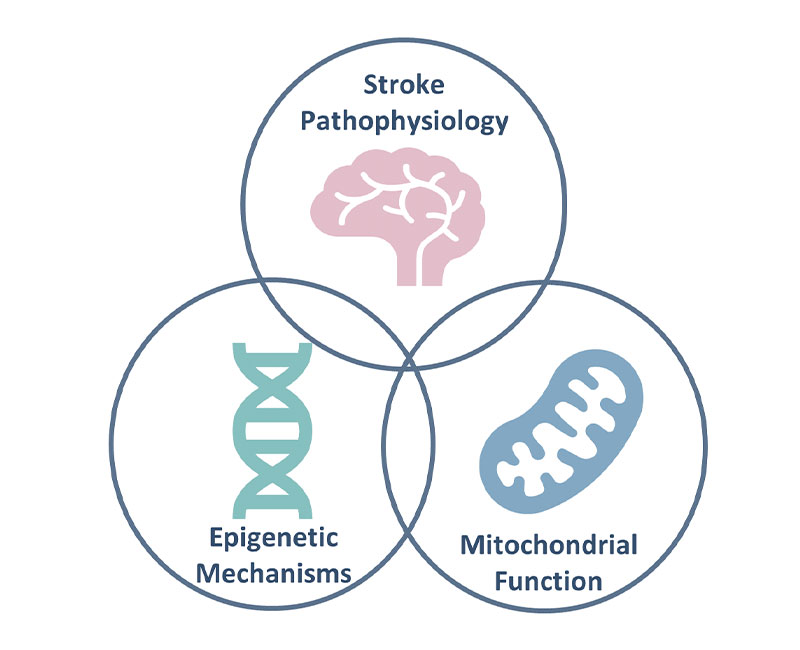Introduction
We investigate the role of epigenetics in stroke pathophysiology. Our laboratory is particularly interested in how epigenetic mechanisms regulate mitochondrial properties and brain damage after stroke. Using experimental models of stroke, we examine the role of DNA modifications as well as epigenomic readers, writers, and erasers in the post-stroke brain with cutting-edge tools. Our research merges neuroscience, genomics, and biochemistry with neurological applications.
Our experimental approach lies at the intersection of mechanistic investigations into brain function and preclinical applications in the diseased brain. Our goal is to translate scientific discoveries at the bench to novel treatment strategies in the clinic.
Featured News
Nov 21
Aug 01
Mar 02
Jul 01
Our Research Interests



